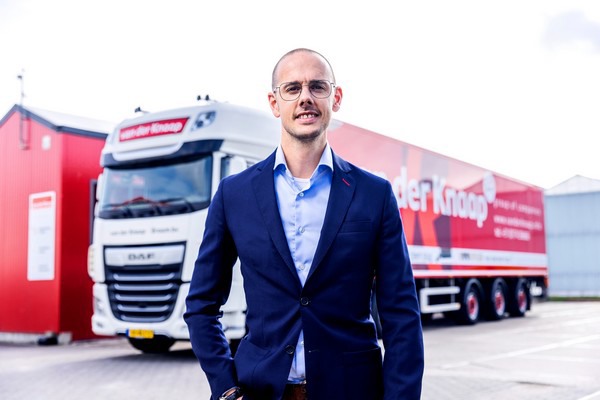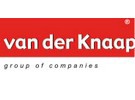Innovation and sustainability are terms you often hear in passing. At a company like Van der Knaap, they are very much focused on distinguishing themselves in those areas, says Peter van den Dool, Company Development Officer. "We really want to be able to stand out in terms of innovation, sustainability, and quality. That's where the focus is for us, and specifically in a number of segment groups: tropical plants, vegetables, soft fruit, and medicinal cannabis. In addition, we also focus on vertical farming with the Rooting business unit."

Substrate market
Enough has already been said and written about the issues surrounding energy prices. But it is interesting to look not only at what that is doing to the sector as a whole but specifically substrate suppliers.
"On the one hand, we see the challenges and threats for companies," says Peter. "For instance, we see less demand for loose substrate and plug products because companies have stopped or are taking a break. On the other hand, in coco growbags, and in sustainable cultivation systems with circular fertilizers - the bioreactor, the Organic Water System - we see a huge increase."
Circular fertilizers
Where does this higher demand come from? Peter first touches on circular fertilizers. "Growers are becoming increasingly aware of the importance of sustainable cultivation systems. Think about recycling raw materials and using residual flows. With the bioreactor for organic cultivation, we have built up the knowledge and experience to also play a significant role in the production of circular fertilizers. The price disadvantage of circular fertilizers has now virtually disappeared. That means more growers are making the move to reuse residual streams."
In doing so, it is up to Van der Knaap to show the grower that those residual streams fully meet quality requirements. "That means that even if we use residual streams from other sectors, there is no risk - those circular fertilizers are 100% safe. We also see this reflected in the interest: more and more growers and grower associations are going for the sustainable choice, aiming to make the sector fully circular. Where the energy crisis has caused problems on the one hand, it is at the same time also a driver for sustainability."
Coco growbags
With coco substrate, it is more or less the same story. "There, we were also facing a price difference compared to stone wool because stone wool is produced locally, which therefore results in lower transport costs. With the huge gas price hike, stone wool slab production has become more difficult, and coir is now even cheaper than stone wool."
Besides that price rise, people are also becoming more aware that stone wool is a mineral product, Peter says. "That leads to a large amount of waste, which used to be processed into cobbles in Germany and England. But almost no cobbles are used in construction today. Besides, growers actually want to be able to return everything, including crops, as circular raw materials at the end of cultivation."
This means that with an organic plant and an organic cube, it is convenient if you also have an organic cultivation mat. "You then only need to take off the plastic, and you have a fully organic raw material stream. Our R&D department is also doing research into replacing the plastic with packaging that is compostable after cultivation."
"Never waste a good crisis"
"I think it is important, while we are facing a crisis, to deal with it in a good way. Never waste a good crisis - and I see that we are doing that not only as a company but also as a sector." In this, it is not only energy that poses a sustainability challenge - but the sector is also currently facing a lobby to replace peat as a substrate raw material. "That is why we are going to proactively develop a sustainability strategy as a sector. We are doing that in the Netherlands with the VPN and at the European level with Growing Media Europe."
On 18 November 2022, a broad coalition of parties signed a covenant with far-reaching targets aimed at reducing the environmental impact of potting soil and substrates. The coalition consists of 15 parties from industry, central government, knowledge organizations, and NGOs. Parties have agreed to accelerate the use of renewable raw materials, reuse of substrates, and responsible peat extraction. It was also agreed that there will be an information campaign towards consumers about used raw materials and the environmental impact of potting soil.
The ultimate goal is to deliver added value in the chain with the substrate sector, Peter explains. "And for that, we also need RPP peat as a buffer to add other circular raw materials." Summing up, Peter sees several challenges in the areas of energy, water, and peat, all of which are triggering great developments. "Sustainability awareness in Europe is gaining traction, and both from growers' associations and the substrate sector, there is a growing awareness that we have a responsibility in terms of sustainability."
For more information:
Peter van den Dool
Van der Knaap Groep
+31 174 296606
[email protected]
[email protected]
www.vanderknaap.info
